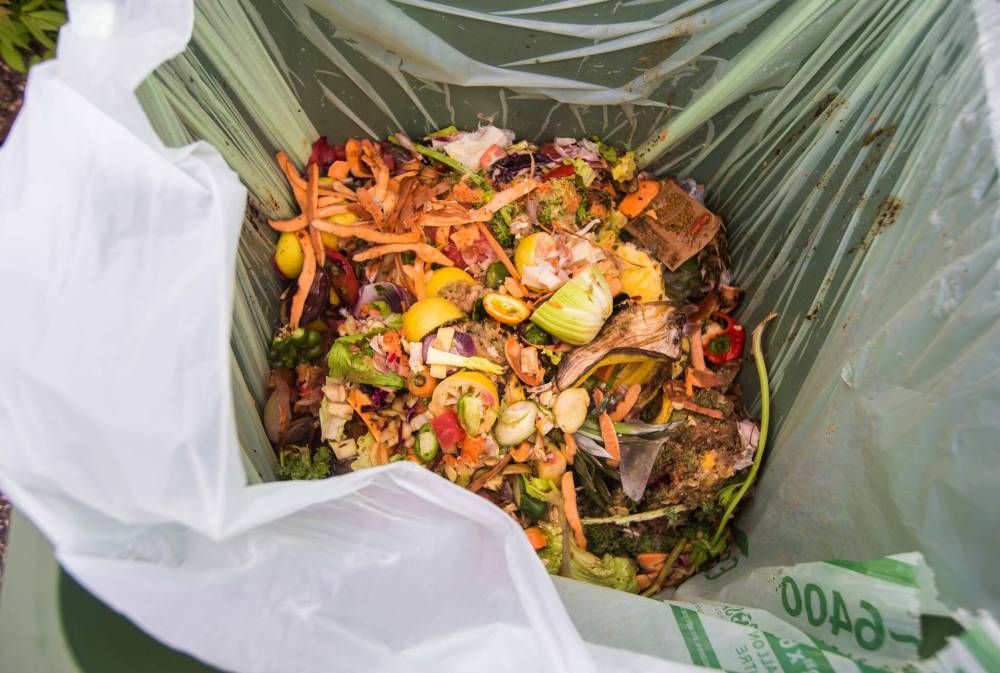Delayed and overblown: composting depots a half-measure
Advertisement
Read this article for free:
or
Already have an account? Log in here »
To continue reading, please subscribe:
Monthly Digital Subscription
$1 per week for 24 weeks*
- Enjoy unlimited reading on winnipegfreepress.com
- Read the E-Edition, our digital replica newspaper
- Access News Break, our award-winning app
- Play interactive puzzles
*Billed as $4.00 plus GST every four weeks. After 24 weeks, price increases to the regular rate of $19.95 plus GST every four weeks. Offer available to new and qualified returning subscribers only. Cancel any time.
Monthly Digital Subscription
$4.99/week*
- Enjoy unlimited reading on winnipegfreepress.com
- Read the E-Edition, our digital replica newspaper
- Access News Break, our award-winning app
- Play interactive puzzles
*Billed as $19.95 plus GST every four weeks. Cancel any time.
To continue reading, please subscribe:
Add Free Press access to your Brandon Sun subscription for only an additional
$1 for the first 4 weeks*
*Your next subscription payment will increase by $1.00 and you will be charged $16.99 plus GST for four weeks. After four weeks, your payment will increase to $23.99 plus GST every four weeks.
Read unlimited articles for free today:
or
Already have an account? Log in here »
Hey there, time traveller!
This article was published 26/10/2024 (454 days ago), so information in it may no longer be current.
On Oct. 15, the City of Winnipeg opened 15 locations for residents to drop off their food waste, touted as a significant step in fighting climate change: “For every tonne of food waste diverted, we remove two tonnes of CO2 emissions,” said Mayor Scott Gillingham. “That’s why this initiative is so important.” But it may not be as meaningful as the city suggests.
The U.S. Environmental Protection Agency has estimated how much CO2 is emitted by food waste. It isn’t two tonnes per tonne, it’s 0.838 tonnes. The mayor’s estimate of the GHG reduction is more than double what it really is.
For all the positive spin, how many people are going to collect their food waste and take it to one of the 15 drop-off locations? If you don’t own a car, are you going to carry your garbage on the bus? And how effective are existing drop-off locations for organic-waste diversion?

MIKAELA MACKENZIE / FREE PRESS FILES
The environmental benefits of Winnipeg’s compost depots are being oversold, critics point out.
The City of Winnipeg collects data on how much waste gets landfilled and diverted. Over the past 17 years, the total amount of waste produced has remained essentially flat. On a per-capita basis, where in 2007 residents produced 864.2 kilograms of total waste per person, by 2022 that was down to 683 kg per person, a reduction of 19 per cent.
When it comes to organic waste, there is nothing new about composting. Municipalities have been doing it for decades. The City of Halifax was the first city in Canada to have curbside pickup for organics, starting in 1998. Most municipalities now provide this service. Statistics Canada found in 2021 that 82 per cent of Canadians compost their yard and/or kitchen waste. Statistics Canada data show that only two per cent of people who diverted their kitchen waste used a depot. Depot use for yard waste is more common, where nine per cent of people used them.
The City of Winnipeg Tonnage Reports give a good breakdown on how residents use the various options. Over the past 10 years, an average of 7,750 tonnes per year of yard waste has been dropped off at depots, compared to an average 31,800 tonnes per year collected at curbside. Using the Statistics Canada average of depot usage for kitchen waste compared to yard waste, two per cent versus nine per cent, we could anticipate around 1,700 tonnes to be collected at the depots each year. Even taking the generous GHG over-estimate put forward by the mayor, that comes out to 3,400 tonnes of CO2 emissions avoided. More realistically, this will be a reduction of 1,425 tonnes of CO2 emissions per year.
Organics in landfills are a major source of greenhouse gases. After transportation and buildings, landfills are often the next largest GHG emitters for municipalities. Cities have been working for a long time to address “fugitive” methane from their landfills. In 2013, the City of Winnipeg launched their Brady Road Landfill Methane Gas Project, spending $4.5 million to capture and flare methane gas. Not only is yard and food waste contributing to climate change, it’s costing a lot to try and mitigate it.
While the City of Winnipeg continues to accumulate the GHG liability of methane in its landfills, it has done little to significantly address reducing organics from the waste stream, the source of the problem.
In 2019, council launched a two-year pilot to study kitchen-waste collection, ending in 2022. The results were significant. Public acceptance was high, participation rate was high, the compost produced was high quality and the potential was good. It was estimated that about 50 per cent of current residential waste could be diverted with a kitchen-waste collection program.
In the fall of 2023, 16 months after receiving the report, council decided to move forward with curbside collection, but only for single-family residences. Not only did it take 16 months to decide, but it will be implemented in 2030, 11 years after approving the pilot project. The “kitchen-waste depots” are for residents to compost their food waste ahead of the full program being implemented in 2030 (42 years after Halifax!).
And 2030 is also the year we are supposed to have reduced our GHG emissions by 50 per cent!
The City of Winnipeg and city council need to get serious about climate change. Everything about the announcement of the depots illustrates they don’t take climate change seriously. From the overestimate of the impact to the length of time for implementation of a “full-scale” green-bin program, they are not serious.
Even then, this will not be a full-scale program as it only serves single-family residences. Winnipeg has over 300,000 residential buildings. Of those, 57 per cent are single-family detached, four per cent are semi-detached, and another four per cent are row houses. That means that 35 per cent of residential buildings are not included in the composting program, over 100,000 properties such as apartment buildings.
Again, city council is not serious about climate change.
Brian Pincott lives in WInnipeg, and was a city councillor in Calgary for 10 years.




